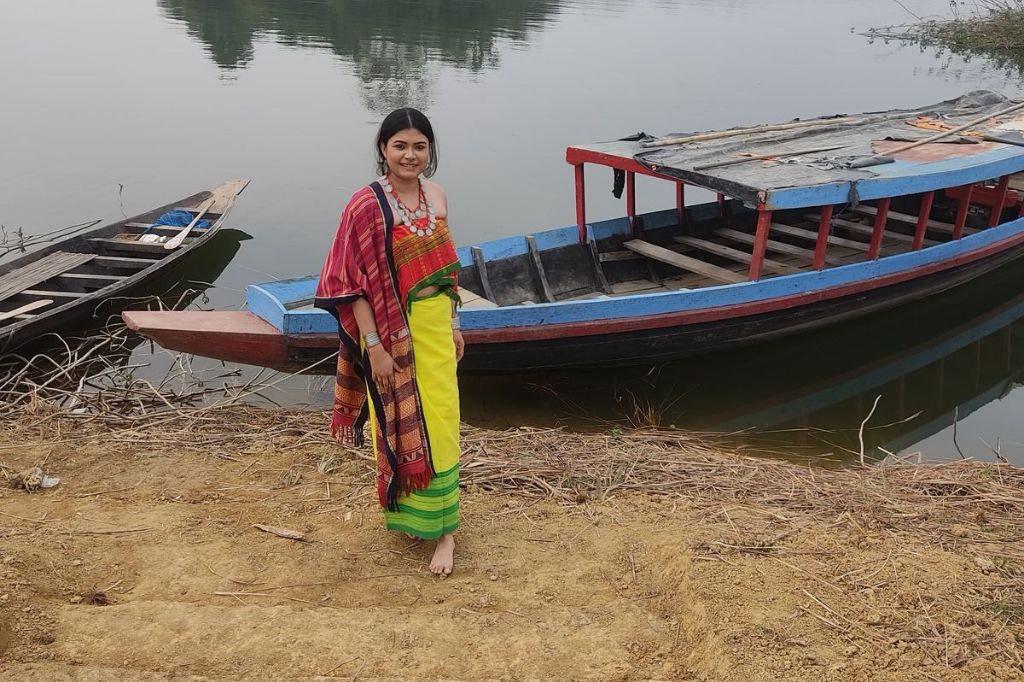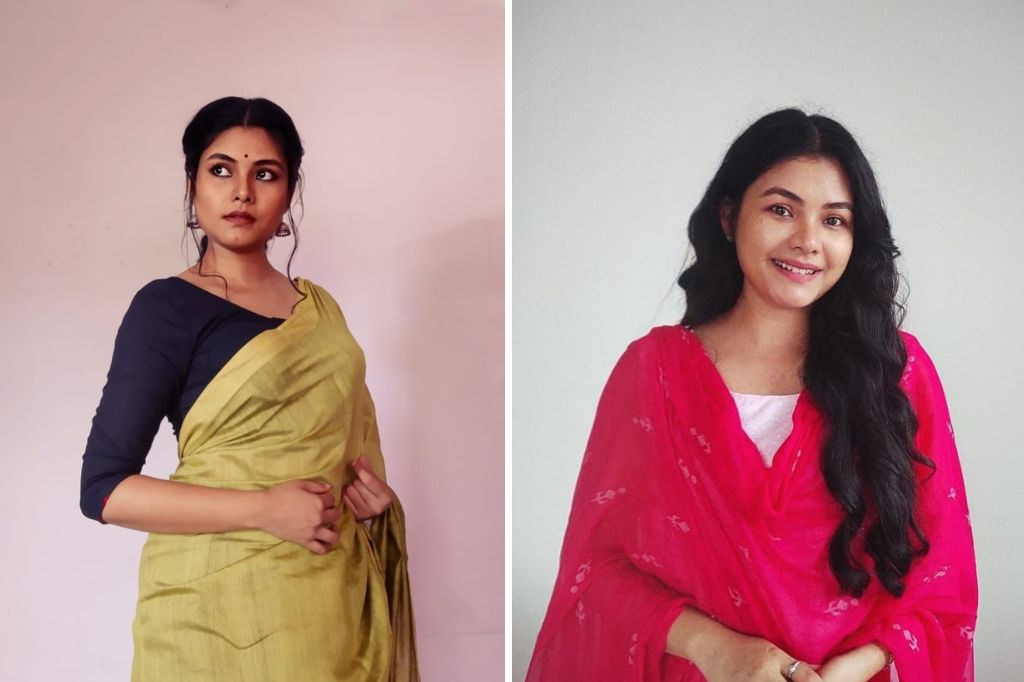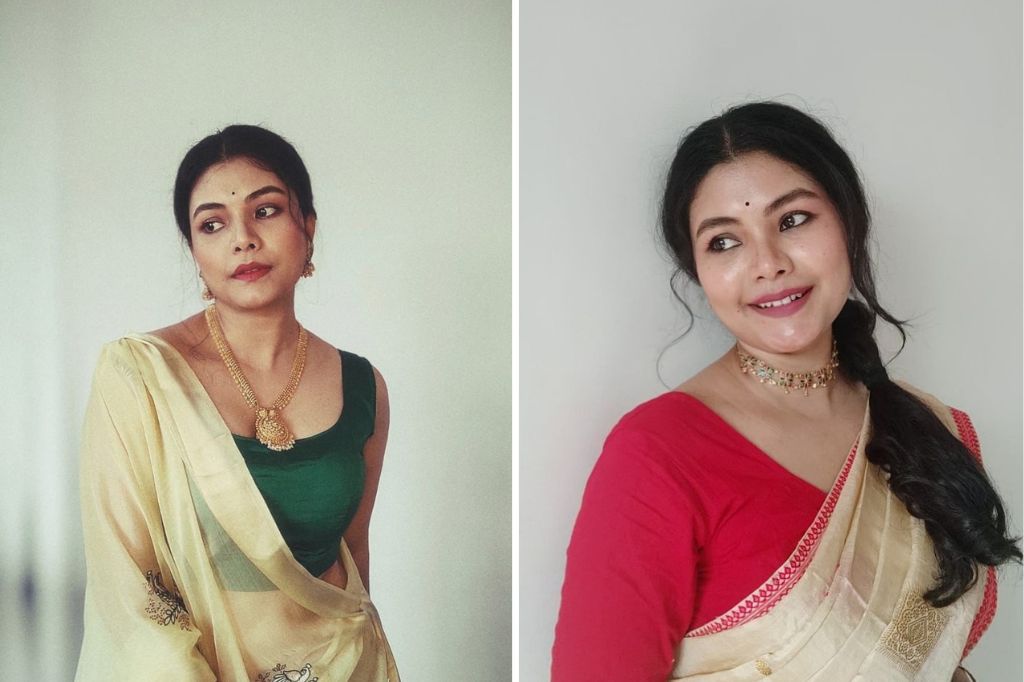At a time when cinema is rediscovering the power of personal stories rooted in history, Porobashi (Ethnic Migration) is being hailed as a film of emotional honesty and quiet strength. Set against the 1960s migration from East Pakistan to Tripura, the film tells a story of loss, survival, and new beginnings. At its core is Ranjita Boruah, who delivers a moving performance that captures the emotional and human side of displacement with remarkable depth and sensitivity.
Born in Assam and trained in theatre, Ranjita has steadily emerged as one of the most promising new voices in regional cinema. With an M.A. in Theatre Arts (Acting) from Dibrugarh University, she later moved to Mumbai to pursue a career in film and modelling. Fluent in multiple languages, she has previously appeared in Burbokor Khel – Game of Fools (2022) and Before Spring (2023).
Her latest project, Porobashi – premiering at the 31st Kolkata International Film Festival (KIFF) – marks a defining moment in her artistic journey. Directed by Monet Roy Saha, the Bengali–Kokborok bilingual film revisits the 1960s migration of Hindus from East Pakistan (now Bangladesh) to Tripura. It follows the journey of a schoolteacher who flees persecution, loses his daughter and rebuilds his life amid the chaos of displacement.
Featuring Loknath Dey, Kinjal Nanda, Ankhi Ghosh, Ajay Tripura, and Swati Mukherjee, Porobashi explores migration, loss, and resilience through a deeply human lens, echoing contemporary themes of identity, belonging, and hope.

In this exclusive conversation, Ranjita Boruah reflects on her preparation process, her collaboration with director Monet Roy Saha, and the emotional journey behind a film that celebrates compassion across borders and the enduring power of shared humanity.
Q. Your role in Porobashi deals with displacement, loss, and rebuilding life in Tripura. How did you prepare emotionally and mentally for this character?
A. I didn’t know much about Tripura’s history before reading the script, but the story’s emotion and depth moved me. Our director, Monet Roy Saha, guided me a lot. I researched the migration, spoke to local people, and spent a few days in the region to understand their lives. I even learned to sail for the film and it helped me connect deeply with my character.
Q. How did your theatre background influence your performance in such a sensitive, bilingual film?
A. My theatre training is my base. It taught me truth, discipline and how to stay connected to emotions. That grounding helped me stay natural and honest in every frame of Porobashi.
Q. The film is bilingual – in Bengali and Kokborok. Was that challenging?
A. Yes, especially Kokborok since it was new to me. I worked with a dialect coach and local speakers to get the tone and emotion right. It wasn’t just about learning lines – I wanted to feel the language and respect its culture.
Q. Did working with others who understood themes of displacement influence your performance?
A. Definitely. Everyone on set felt deeply connected to the story. That shared emotion made the atmosphere powerful and very real for all of us.
Q. Was there a particular scene that was emotionally challenging or memorable?
A. Yes, one scene with my on-screen father-in-law was very intense and stayed with me long after shooting. I can’t share details yet, but it was emotionally draining.

Q. The film premiered at KIFF. How has the response been, and what do you hope audiences take away?
A. The response at the Kolkata International Film Festival was wonderful. People connected with the story and my character. I hope the film touches audiences when it releases in theatres soon.
Q. What personally drew you to Porobashi?
A. The honesty of the story and Monet Roy Saha’s vision. It’s a meaningful project rooted in our shared history – that’s what drew me in.
Q. As an actor from the Northeast, how significant is this film for you?
A. Very significant. Stories from the Northeast are rarely told on big platforms. Being part of Porobashi feels special because it shares our voices and culture with wider audiences.

Q. How do you see Porobashi shaping your career?
A. I want to keep working on meaningful stories across languages. Porobashi has opened a new chapter for me, and I hope it leads to more exciting projects in Bengali, Assamese, and Hindi cinema.







